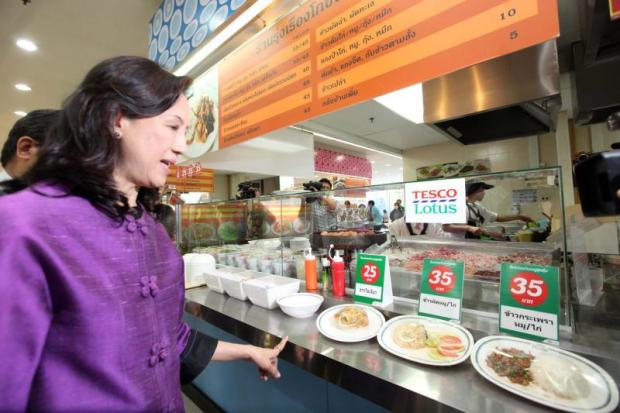
The government has agreed to closely monitor wheat imports, requiring each importer to report the volume of their imports three months in advance.
The requirement seeks to curb imported wheat, which is tariff-free and has resulted in lower domestic maize and tapioca prices, causing local farmers to cry foul.
The central commission on prices of goods and services, chaired by newly appointed permanent secretary for commerce Wiboonlasana Ruamraksa, met recently to enact the measure. It also wants importers to report the volume of their wheat imports made earlier in the year.
Importers are required to report the purpose of their imports as well as their inventory so Commerce Ministry authorities can easily monitor their movement.
Ms Wiboonlasana said importers would be informed of the requirements this week.
A group of farmers recently filed complaints with the ministry that nearly 1 million maize and tapioca growers and their families are feeling the pinch from the wheat liberalisation policy.
They are also concerned about the rising amount of wheat being imported.
In 2014, Thailand imported 593,000 tonnes of wheat. The figure rose to 3.46 million tonnes in 2015 and will reach an estimated 5 million tonnes this year.
Higher imports have affected domestic prices of maize and tapioca chips in recent years.
Maize prices are now quoted at about eight baht per kilogramme compared with 9.39 baht in the 2014-15 season. Tapioca chip prices now fetch 5.10 baht per kg, down from 7.49 baht in the previous season.
Thailand has about 450,000 families of maize growers and 520,000 families of tapioca farmers.
Thailand waived import tariffs on wheat in 2013 at the request of animal feed producers. Before the move, wheat prices were about one to two baht higher than maize prices.
Imports rose following the waiver, and wheat prices have been one to two baht lower than maize prices since 2014.
Imports of corn distiller's dried grains with solubles also rose the past three years. They increased to 462,000 tonnes in 2015 and 226,000 tonnes in 2014.
The imports have resulted in lower purchases of domestic maize, affecting farmers' income, said a source familiar with the matter.
The Commerce Ministry reported leading wheat importers include Bangkok Produce Merchandising Plc of Charoen Pokphand Group, Betagro Group, Laemthong Corporation Group, Sunfeed and United Flour Mill Plc. The first four import wheat mainly to make animal feed, while United Flour Mill imports to make food for people.
An industry source warned that local maize and tapioca prices would definitely keep dropping if wheat imports continued without any buffer measures, with animal feed producers no longer wanting to buy local produce.
Although the government put wheat flour among the 41 items on its price control list earlier in the year, it has done little to dampen imports.
The price control list covers essential items for daily use such as food, consumer products, farm-related products (fertilisers, pesticides, animal feed, tractors, rice harvesters), construction materials, paper, petroleum and medicines.
Businesses making or selling products on the list are required to inform the authorities of their production costs and seek approval before any price increase.